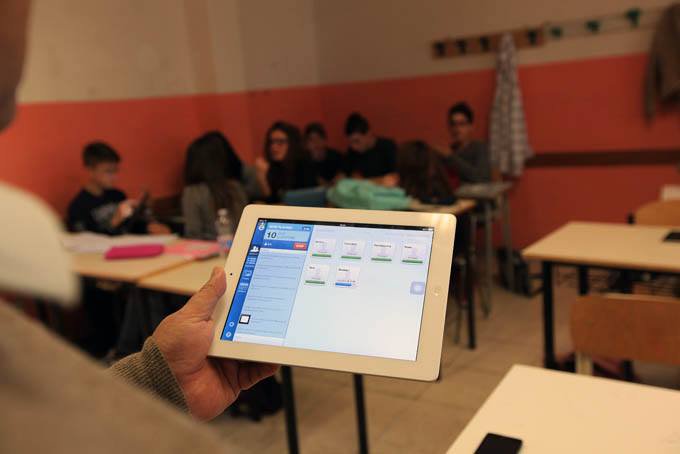The course Bring Food And Learn Technology made by Salvatore Giuliano, has the aim to to stimulate a confrontation between teachers over the creation of productive studio environments
Salvatore Giuliano’s recipe for innovating Italian schools is simple and needs just one ingredient: passion, passion, and more passion. We would have expected something much more technological from the creator of the Book in Progress initiative but, instead, he claims the only element that is necessary is passion. And, as a condiment, it is also necessary to be aware of the potential that digital tools have for teaching. The principal from Brindisi has decided to organize at his institute ITIS Majorana, a summer school program set for 20 – 22 August during which the advantages of using technology in the Italian school system will be discussed. The course is for teachers of all levels, who will learn how to use mobile applications, software for ebook production, tests, video-lessons and lesson sharing platforms. The lessons will take place in the classroom of the future – as Salvatore Giuliano defines it – a creative and non-conventional space.
THE COURSE. The summer school foresees three meetings, 8 hours each, with a maximum of 15 participants per session, and a requested contribution of 10 euros to cover food costs, thus the title of the course, Bring Food And Learn Technology. Any proceeds will be given to charity. During the course, teachers from any school in Italy will be able to learn the benefits of technology when applied to teaching. It will be important to stimulate a confrontation between teachers over the creation of productive study environments following the logic of the flipped classroom. Salvatore Giuliano: «We will offer various points to reflect on, for example: how to explain Dante Alighieri to students through technology? We will recap all of the experiences over the past few years, without the presumption of teaching, but only of showing a new way to do schooling».
THE GOAL. «The exchange of opinions between teachers on the theme of innovation is a form of collective growth that we have been trying to move ahead for years now». The principal from ITIS Majorana explains how these occasions offer good networking opportunities between teachers from different schools. «With our summer school we intend to present the best practices for a new learning system that uses technology as a support tool».
HOW TO CHANGE TEACHING METHODS. During the encounter, the impact of digital technology on the Italian scholastic system will be discussed, with a reflection on how the times and learning spaces have changed. «Technology has the power to transform the concept of class, no longer thought of as a place where teachers talk to students sitting in front of them while they listen passively but, rather, as a place of sharing that favors collaborative teaching, based on the exchange of knowledge and the balancing of competencies».
TEACHER TRAINING. The latest evocative declarations by the Italian Minister of Education, Stefania Giannini, regard the necessity to revolutionize schools starting with the training of teachers in new technologies for learning. The teachers, on the other hand, must already have the desire to change things, and do it with passion, otherwise there is no kind of training that will stick. Salvatore Giuliano emphasizes: «The stimulus to innovate must come from teachers themselves, because things imposed from above do not work. If a teacher is motivated, he will involve other people in sharing what he has learned. Innovation comes from the bottom and by contagion».
WHAT IS REALLY IMPORTANT TO LEARN. The principal from Brindisi is convinced that huge investments are not necessary to train teachers, it is just necessary to make intelligent and correctly targeted use of the resources that are already available. «It is useless to offer courses in IT, making training the banal use of Office packets or using the internet. Knowing how to use Microsoft Word is not enough to change schools. It would be more useful to make any type of device available, a computer, a tablet, a smartphone, and understand how to change teaching by starting with what is available, which goes beyond the use of basic tools.
THE RESULTS SO FAR. The trials and tests that have been conducted so far at ITIS Majorana have had surprising results: «By experimenting with this new type of teaching we have demonstrated that the learning ability of students improves year after year. We must not forget that it is not just merit of technology because the protagonist is still the teacher, who remains at the center of this new teaching system. They are the people who make the difference, technology is just an excellent tool to be used».
THE CHALLENGE. «All of our efforts are aimed at the definition of a different studying environment, where traditional classes no longer exist, but only homogenous groups divided by competencies which the students choose to be in based on their own peculiarities. We are launching a challenge at a global level. The idea is ready and the will do it is not lacking. To change the school we must propose a pilot experience, review the ways that teachers and scholastics directors are selected, implementing the concept of responsible autonomy based on the logic of reaching goals».








